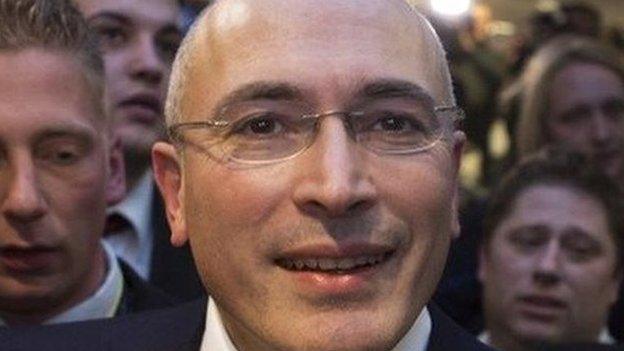Court overturns Russia's $50bn Yukos shareholder payout
- Published
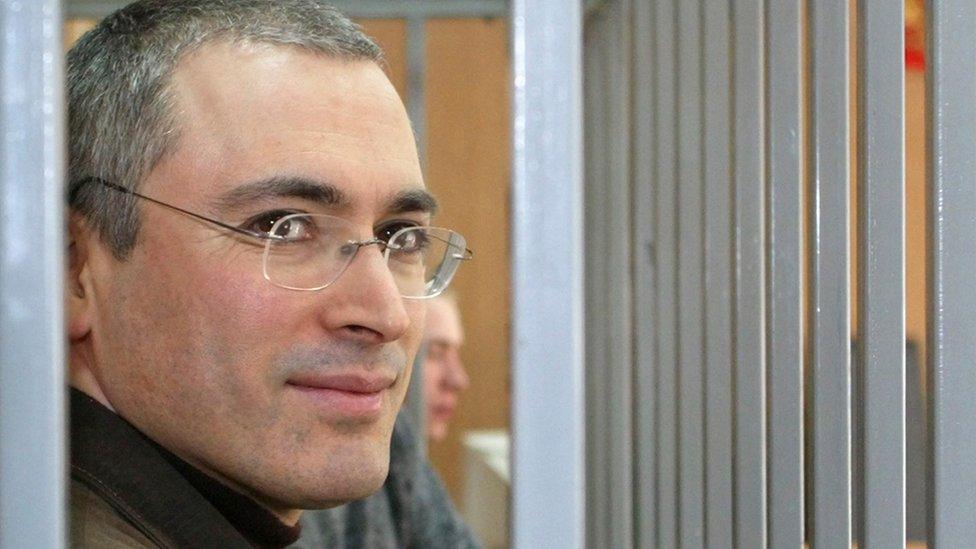
Former chief of Yukos Mikhail Khodorkovsky was jailed for 10 years following the break-up of his company
A Dutch court has overturned an order that Russia pay $50bn (£29.5bn) to former shareholders of an oil company that was forcibly broken up in 2007.
The Hague's Permanent Court of Arbitration (PCA) ruled in 2014 that Russian officials had manipulated the legal system to bankrupt Yukos, and jail its boss Mikhail Khodorkovsky.
But The Hague District Court said the PCA had no jurisdiction in the case.
The former shareholders behind the suit vowed to appeal against the decision.
The compensation award was to be the largest in history.
In its argument on Tuesday, the Hague district court said Russia had never ratified the energy treaty under which the PCA had based its case.
Welcoming the court decision, Kremlin spokesman Dmitry Peskov said: "The Russian Federation from the very beginning of this case insisted that the decision of the tribunal didn't take into consideration the most important aspects of international law."
Russian stock indexes rose on Wednesday following the decision.
Tim Osborne, director of GML, the company representing Yukos' largest shareholders, said the break-up of Yukos was "politically motivated" and the 2014 decision was the right one.
"We will appeal [against] this surprise decision by The Hague Court and have full faith that the rule of law and justice will ultimately prevail," he said in a statement.
BBC Russian's Yuri Vendik says that while the court's decision does not mean the end of the $50bn compensation case, Russia can use the verdict to avoid having its state assets frozen by the courts in other countries, including Belgium, France, Britain, the US and Germany.
Challenge to Putin
Yukos was at one point Russia's largest oil producer, and Khodorkovsky the nation's richest man.
The billionaire used his vast wealth to fund opposition parties challenging Mr Putin's power.
He was arrested in 2003 and spent 10 years in jail after being convicted of fraud and tax evasion - charges he says were politically motivated.
He was officially pardoned by Russian President Vladimir Putin.
State-owned Rosneft bought the bulk of Yukos assets after the company was declared bankrupt.
Last December, Russian authorities charged Khodorkovsky in his absence with ordering the 1998 murder of a Siberian mayor.
Khodorkovsky, who denies the charges, said at the time he was considering applying for political asylum in the UK.

How can Dutch court overturn international court decision?
Parties to arbitration agree in which country the case will be heard, which gives local courts the right to hear appeals.
In this case, the Hague district court threw out the arbitration panel ruling.
Parties can begin this case in some other arbitration court and country.

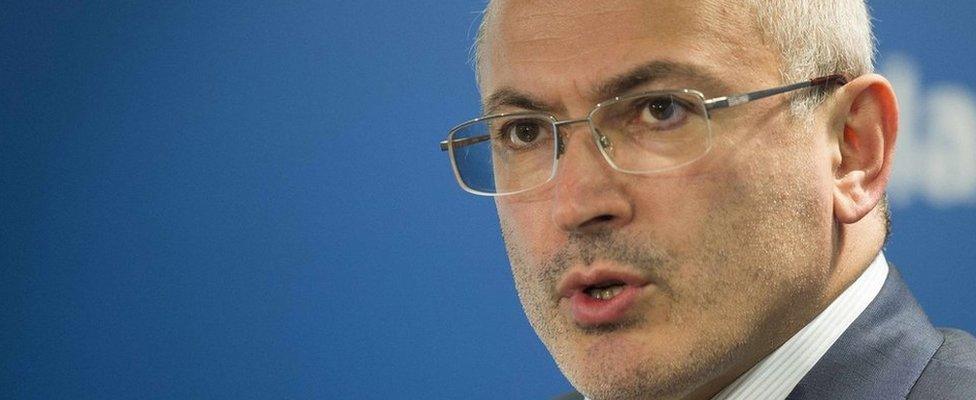
Timeline: Mikhail Khodorkovsky
1963 - Born in Moscow, son of chemical engineers
1987 - Founds Menatep bank
1995 - Buys Yukos for $350m, with Menatep assuming $2bn in debt
2003 - Arrested for tax evasion, embezzlement and fraud
2005 - Found guilty on six of seven charges, jailed for eight years
2007 - Yukos declared bankrupt
2010 - Convicted of embezzlement and money laundering
2013 - Pardoned by President Putin after request for clemency; leaves Russia
2014 - Former Yukos shareholders awarded $50bn (£29.5bn) by Dutch court over breakup of company
2015 - Charged with ordering 1990s murder of Siberian mayor; says he is considering asking for political asylum in the UK
2016 - Dutch court overturns 2014 Yukos compensation decision
- Published22 December 2013
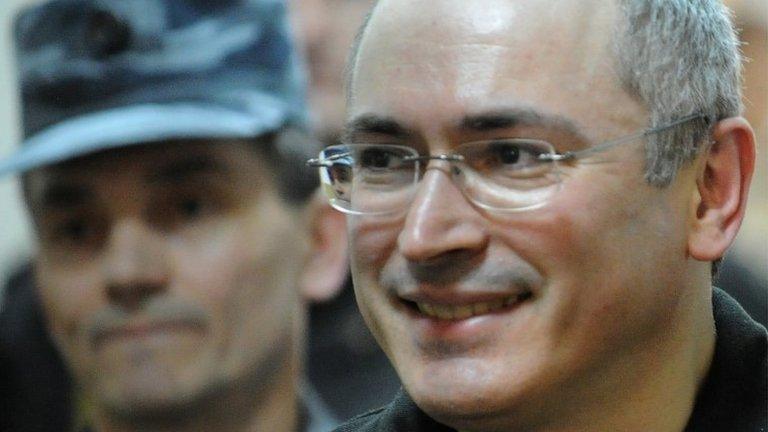
- Published23 December 2015
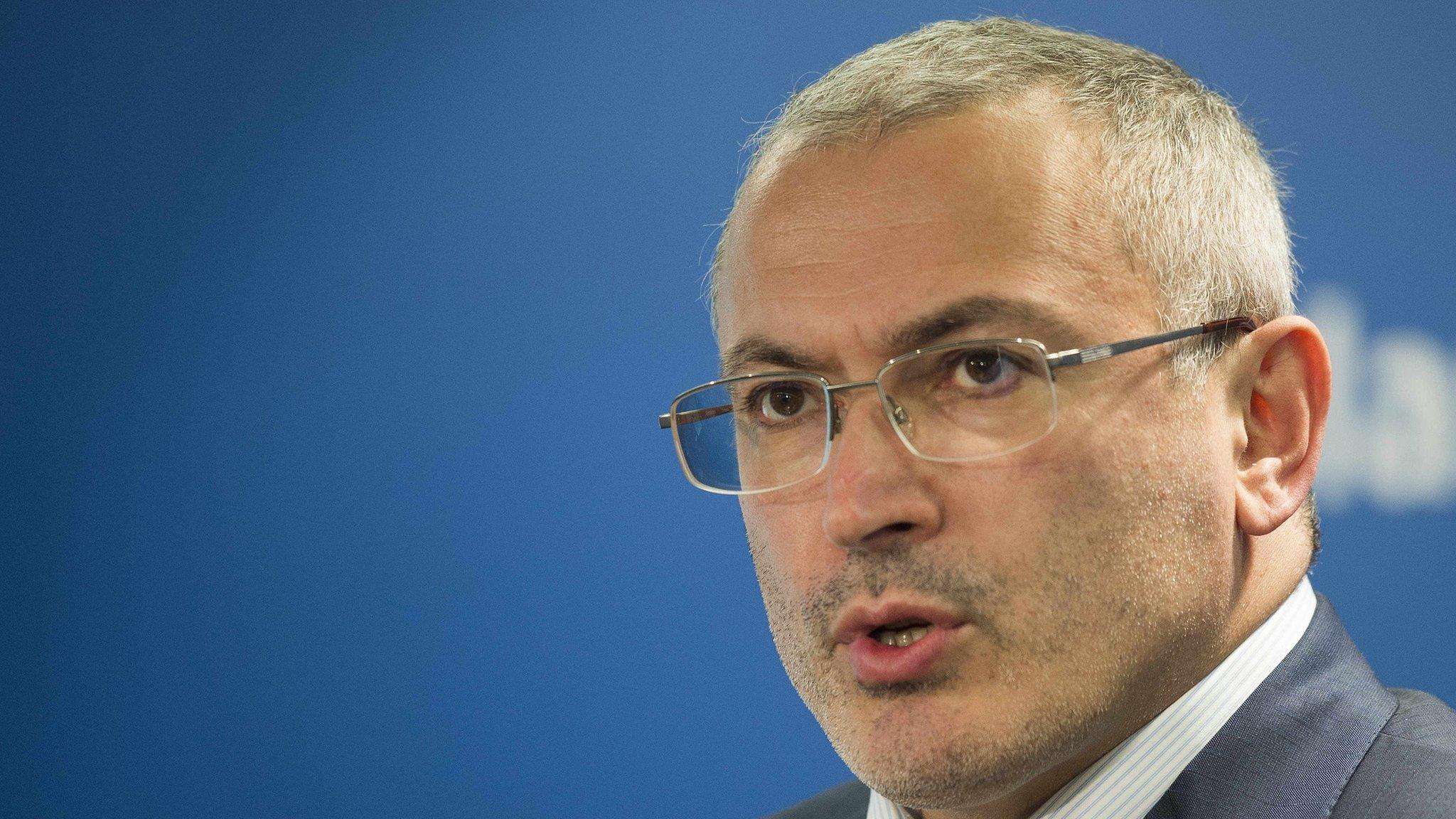
- Published28 July 2014
